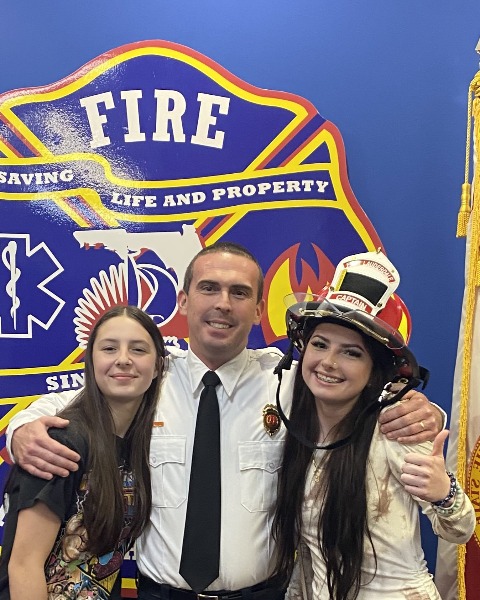The Tanker Whisperer (Part 2 of 2)
Saturday, June 8, 2024
9:30 AM - 11:00 AM East Coast USA Time
Location: Holiday Ballroom 5

Robert J. Bohrer, Bachelor's in Science degree in Fire Administration & Associate in Science degree in EMS
Fire Captain/Hazmat Technician
Fort Lauderdale Fire Rescue
Port St. Lucie, Florida, United States
Speaker(s)
This course will review fuel tanker incidents that the instructors have personally responded to over the years and how each incident was handled. The course will also dive into safety measures and procedures to effectively mitigate a leaking tanker and risk vs benefit analysis for tanker fire emergencies. The training will also go into all the steps to properly ground and bond a tanker, securing tanker battery power, foam operations, how to drill into a tanker for off-loading of product, and many other procedural steps.
Aside from fuel tankers, this course will also discuss other types of tankers involved in highway incidents, such as corrosive, cryogenic, high-pressure, etc. This course focuses on various factors which enhances the Hazmat responders critical thinking and troubleshooting while onscene of tanker and highway emergencies.
This course will also give an overview of preparing for off-loading of product using a closed-loop system or an open (splash) system. The training will review the use of a Betts Valve for off-loading corrosive product and flaring procedures for maintaining safe pressures during off-loading of MC331 tankers. The course will also review making the proper requests for compatible tankers to off-load into from the damaged tanker.
In addition, the course also covers what proper PPE to wear, proper decontamination, as well as what metering technologies and equipment are necessary to successfully mitigate these types of emergencies. The overall objectives of the class are to highlight the dynamics of tanker emergencies and to improve the hazmat technician’s use of various strategies and tactics for handling these types of incidents.
Aside from fuel tankers, this course will also discuss other types of tankers involved in highway incidents, such as corrosive, cryogenic, high-pressure, etc. This course focuses on various factors which enhances the Hazmat responders critical thinking and troubleshooting while onscene of tanker and highway emergencies.
This course will also give an overview of preparing for off-loading of product using a closed-loop system or an open (splash) system. The training will review the use of a Betts Valve for off-loading corrosive product and flaring procedures for maintaining safe pressures during off-loading of MC331 tankers. The course will also review making the proper requests for compatible tankers to off-load into from the damaged tanker.
In addition, the course also covers what proper PPE to wear, proper decontamination, as well as what metering technologies and equipment are necessary to successfully mitigate these types of emergencies. The overall objectives of the class are to highlight the dynamics of tanker emergencies and to improve the hazmat technician’s use of various strategies and tactics for handling these types of incidents.
Learning Objectives:
- The participant will increase their knowledge of conducting a thorough size-up and implementing proper procedural steps for dealing with tanker emergencies of all kinds, including implementing various strategies and tactics for these incident types.
- The participant will increase their knowledge related to efficiently and effectively mitigating tanker emergencies involving leaks and fire, as well as the proper PPE selections and equipment needed.
- The participant will review various case studies of tanker emergency calls the instructors have personally run, and what the tactical outcomes of each incident were.

.png)
.png)